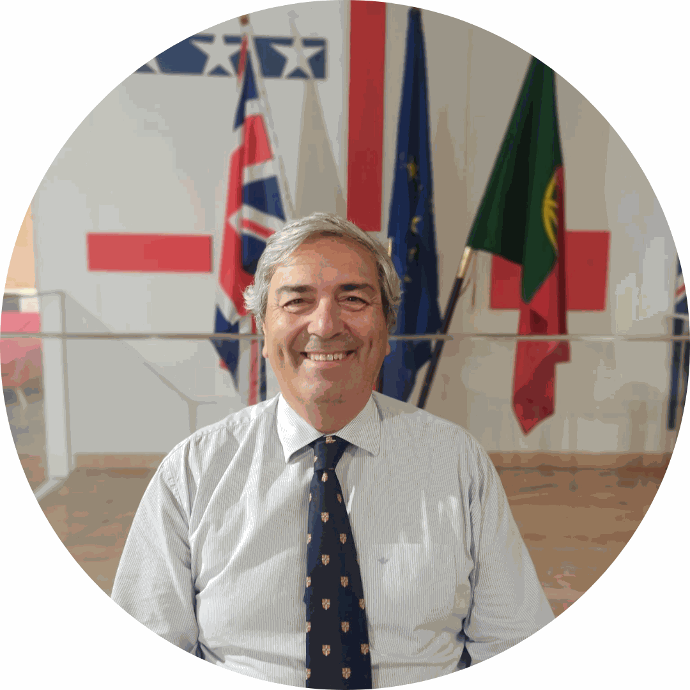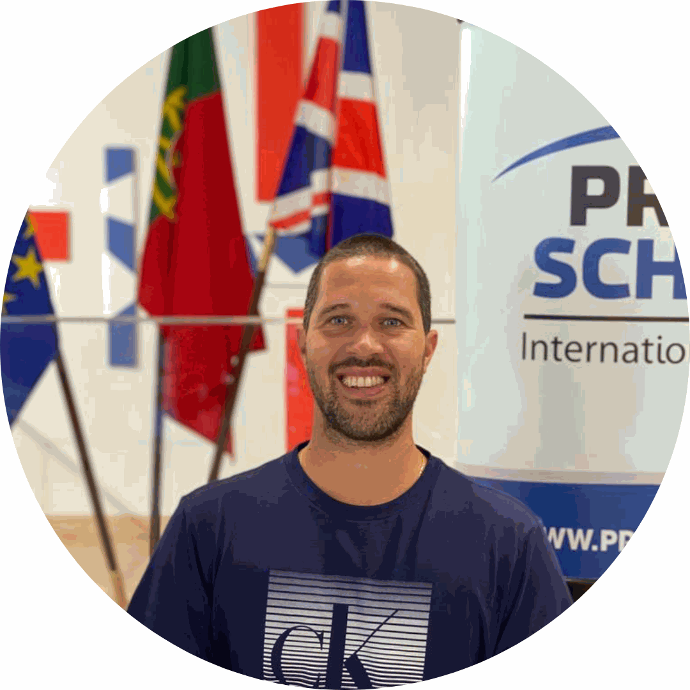Overview
Discover the gateway to shaping young minds with our HND in Early
Childhood Education and Care. Gain a comprehensive understanding of
child development, foster nurturing environments, and unlock rewarding
career opportunities in the dynamic field of early childhood education.
Enroll today and embark on a journey to make a lasting impact on the
lives of children and their futures
Start Date
year-round
(course and enrollment takes place all year long)
Location
Lisbon Campus
Estoril Campus
or Online
Duration
2 Years
Accommodations
Place where students can reside while attending the university
€ 3.500/ year
Internship
The intern will receive payment for their work during one month period
Fees
Enrolment/ Renewal fee
€500
- The annual tuition fee is set at €4680.
- This can be settled in 8 installments.
- For every assignment, there is a charge of €80.
Please note:
Each HNC and HND course requires a total of 8 assignments to be completed annually.
Higher National Diploma
Our HND in Early Childhood Education and Care is a comprehensive program designed to provide students with the knowledge, skills, and practical experience necessary for a successful career in the field of early years childhood education.
Throughout the course, students will delve into various aspects of child development, learning theories, and best practices in early childhood education. They will explore the importance of creating inclusive and nurturing environments that promote holistic growth and development for young children.
The HND curriculum covers a wide range of topics, including child development theories, promoting physical and mental well-being, designing age-appropriate curricula, fostering positive relationships with families, and implementing inclusive practices for children with diverse needs.
Our dedicated faculty members bring a wealth of experience and expertise to the classroom, providing students with mentorship and guidance throughout their learning journey. They facilitate interactive discussions, practical exercises, and reflective assignments to deepen students' understanding and application of key concepts.
Upon successful completion of the program, students will be equipped with the necessary qualifications to work as early years educators, nursery practitioners, or childcare professionals. They will have a solid foundation to pursue further academic studies or career advancement opportunities in the field of early childhood education.
At our institution, we are committed to preparing compassionate and competent professionals who can make a positive difference in the lives of young children. We strive to provide a supportive and inclusive learning environment that nurtures students' passion for early childhood education and empowers them to become effective advocates and educators for young learners.
Join our HND in Early Childhood Education and Care and embark on an enriching educational journey that will shape your career and enable you to contribute to the development and well-being of young children in our society.


Why Choose Early Childhood Education?
There are several compelling reasons to choose our HND in Early Childhood Education:
Comprehensive Knowledge and Skills: The course provides a comprehensive understanding of child development, learning theories, and best practices in early childhood education. You will gain the knowledge and skills necessary to support and nurture the growth and development of young children effectively.
Practical Experience: The program offers supervised placements in real-world early years settings, giving you valuable hands-on experience. These practical experiences allow you to apply your learning, observe experienced practitioners, and develop essential skills in working with young children.
Career Opportunities: Early childhood education is a growing field with a high demand for qualified professionals. By completing this course, you will be equipped with the qualifications and practical experience needed to pursue a rewarding career as an early years educator, nursery practitioner, or childcare professional.
Personal and Professional Growth: Working with young children is a rewarding and fulfilling experience. This course provides an opportunity for personal and professional growth as you learn to effectively engage with children, develop nurturing relationships, and contribute to their holistic development.
Inclusive Practices: The course emphasizes the importance of inclusive education, teaching you how to create an inclusive learning environment that accommodates the diverse needs of all children. You will develop the skills to support children with special educational needs and create an inclusive and supportive classroom environment.
Further Education Pathways: The HND qualification serves as a solid foundation for further academic studies. Upon completion, you may choose to progress to a higher-level degree program or pursue specialized certifications in areas such as special education, early intervention, or educational leadership.
Making a Difference: Working with young children offers the opportunity to make a lasting impact on their lives. By choosing this course, you can contribute to the development, well-being, and future success of young learners, making a positive difference in their lives and society as a whole.
In summary, choosing our HND in Early Childhood Education and Care will provide you with a comprehensive education, practical experience, and the qualifications needed to pursue a fulfilling career in the field of early childhood education. You will gain the knowledge, skills, and confidence to make a positive impact on the lives of young children and contribute to their educational journey.
Level 4 Higher National Certificate in Early Childhood Education and Care
Qualification credit value: a minimum of 120 credits. This is made up of eight units, each with a value of 15 credits.
●Total Qualification Time (TQT)Higher National Certificate (HNC) = 1,200 hours
●Total Guided Learning Hours (GLH)Higher National Certificate (HNC) = 480 hours
●All units in the qualification (listed in the structure table overleaf) are core
mandatory units and are at Level 4.
Units at Level 4
Core Unit Mandatory - Unit credit (15 each unit)
Personal and Professional Development through Reflective Practice
Protecting Children in Early Education and Care EnvironmentsPlay and Learning in Early Childhood
Supporting and Promoting Children's Development (Babies and Toddlers)
Supporting and Promoting Children's Development (Young Children)
Promoting Healthy LivingPreparing for Research
Promoting Inclusive Early Education and Care Environments
Units at Level 5
Core Unit Mandatory
Investigating Childhood: Action Research for Early Childhood Practitioners
Improving Quality in Early Childhood Education and Care Environments
Innovative Approaches to Children's Play and Learning in Practice
Plus an additional 45 Credits which can be selected from the specialist and optional units given below. *Please note that only one specialist unit can be selected from each pathway group.
Specialist units
Managing and Leading People in Children’s Early Education and Care Environments
Managing Children’s Early Education and Care EnvironmentsMentoring and Supervision in Early Education and Care Practice
Social and Community Care Practice
Child-centred Practice with Children, Families and Communities
Supporting Social Work with Children, Young People and Families
Social Policy: Influences on Practice and Provision
Optional Units
Current & Emerging Pedagogies in Early Childhood Education and Care
Approaches to Entrepreneurship in Early Childhood Education and CareThe Impact of Contemporary Global Issues on Children's Health and Wellbeing
Advanced Practice in Safeguarding and Child Protection for the Early Childhood PractitionerSupporting Children in Home-based Childcare Environments
Health Education and Promotion in Action:
Developing the Healthy ChildTrauma in Childhood: Addressing the Impact of
Adverse Experiences on Child Health and Wellbeing
Supporting Children’s Medical Needs
Healthcare Play
Outdoor Play and Learning
Comparative Education Systems: International Perspectives
Working in Partnership across Health, Education and Care Services
After completing an HND in Early Years Childhood Education and Care, there are several potential progression pathways you can consider.
Here are a few options:
1. Bachelor's Degree in Early Childhood Education: You can pursue a Bachelor's degree in Early Childhood Education to further deepen your knowledge and skills in the field. This degree program will provide you with a more comprehensive understanding of child development, curriculum planning, educational theories, and effective teaching strategies.
2. Postgraduate Studies: If you wish to specialize further in a specific area or pursue leadership roles in the field of early childhood education, you may consider pursuing a postgraduate degree such as a Master's or Doctorate in Early Childhood Education or a related field. These programs can open up opportunities for research, advanced teaching positions, policy development, or consultancy roles.
3. Teacher Licensure/Certification: Depending on your location and career goals, you may need to obtain a teaching license or certification to work as a qualified early childhood educator. Investigate the specific requirements in your region and consider pursuing the necessary credentials to enhance your career prospects and opportunities.
4. Management and Administration Roles: With your HND qualification, you can explore leadership and management positions in early childhood education settings. These roles may involve overseeing educational programs, staff management, curriculum development, and ensuring compliance with regulatory standards.
5. Entrepreneurship: If you have a passion for entrepreneurship, you could consider starting your own early childhood education business or consultancy. This would allow you to apply your knowledge and expertise while creating your own unique approach to providing quality care and education for young children.
Remember, career progression is not limited to these options alone. The field of early childhood education is diverse and constantly evolving. It's essential to stay updated with current research, trends, and best practices in the field to identify new opportunities and possibilities for professional growth.
I recommend exploring these options further, conducting research, and speaking with professionals in the field to determine the best progression path based on your interests, long-term goals, and the opportunities available in your specific region.
Best of luck in your future endeavors!

Head of Business Course
Edith Reina
Economics BSc (Hons)

Head of Teaching Course
Francisco Saraiva
PHD (Mechanical Engineering)

Head of Sport Science Course
Diogo Baldo
Sport Science BSc (Hons)

Head of Computing
Yogesh Kushwaha
Masters in Computer Application